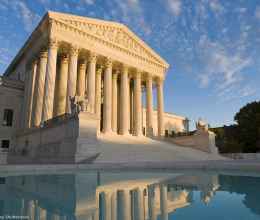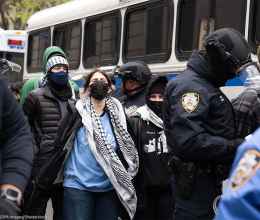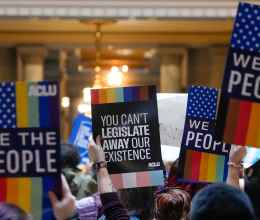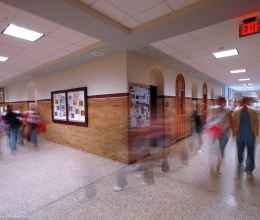
FOR IMMEDIATE RELEASE:
June 23, 2008
CONTACT:
ACLU Florida Media Office (786) 363 2737 or media@aclufl.org
ORLANDO – The American Civil Liberties Union of Florida is representing the plaintiffs in First Vagabonds Church of God et al v. City of Orlando, in trial before the Honorable Gregory A. Presnell, beginning at 9:00 a.m., Monday, June 23, 2008 in Courtroom 5A, on the fifth floor of the U.S. Courthouse, 401 West Central Boulevard, Orlando, Florida, 32801-0575. Plaintiffs will be available for comment at 4:30 p.m., on the Courthouse steps.
The First Vagabonds Church of God (FVCG), Orlando Food Not Bombs (OFNB), and individual members of both organizations are challenging the City of Orlando’s homeless feeding ordinance, passed in July of 2006, because it violates their constitutional rights to free speech, free assembly, free association, and freedom of religion.
“We finally have a chance to show the court the harm that the City’s ordinance has done to free speech and free exercise of religion of the people of Orlando,” says attorney Glenn Katon of the ACLU of Florida.
The City’s ordinance requires groups and individuals to apply for a permit, only two of which are allowed per year, to share food with more than twenty-five people in downtown public parks. Violations are punishable by sixty days in jail and a $500 fine.
“If the spirit of God draws number twenty-six to me, how can I tell God, ‘no’,” asks Pastor Brian Nichols of the FVCG. “How can I choose between God’s will and the City of Orlando’s ordinance?”
The FVCG and OFNB are Orlando-based organizations that assemble weekly to share food in public parks and to express their religious and political beliefs, respectively. The FVCG is a homeless church without a building for worship. Pastor Nichols’ religion requires him to share food and help provide life sustaining services with his congregation. The homeless feeding ordinance deprives him of this right and threatens the existence of the Church. OFNB holds food sharings to draw attention to problems of hunger and homelessness in Orlando. The ordinance hinders the group’s ability to fulfill its mission.
“We’re fighting to extend the Bill of Rights and human dignity to all people in the City of Orlando,” said ACLU cooperating attorney Jacqueline Dowd. “The City’s ordinance sends the wrong message about how the homeless and disadvantaged should be treated.”
About the ACLU of Florida
The American Civil Liberties Union (ACLU) of Florida is freedom's watchdog, working daily in the courts, legislatures and communities to defend individual rights and personal freedoms guaranteed by the Constitution and the Bill of Rights. For additional information, visit our Web site at: www.aclufl.org.
# # #





